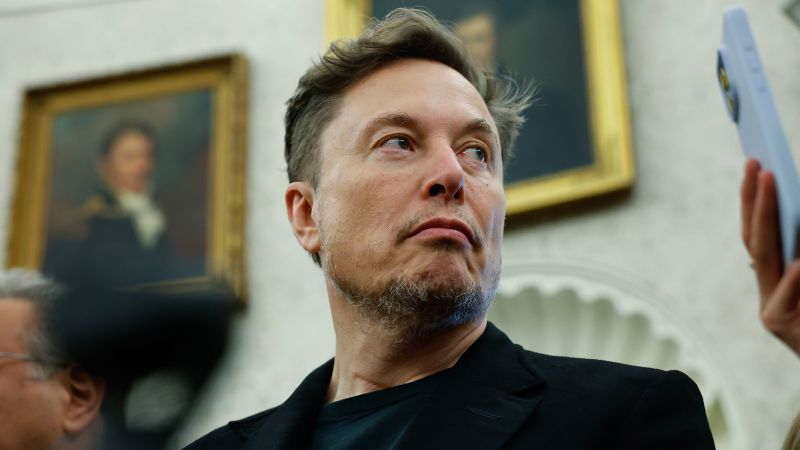In a surprising announcement made on Wednesday evening, tech mogul Elon Musk, who had been granted a unique status as a special government employee to spearhead the Department of Government Efficiency (commonly referred to as DOGE), revealed that his tenure within the Trump administration has come to a close. Musk, known for his influential roles in several high-profile tech companies, took to the social media platform X, which he owns, to express his gratitude to President Donald Trump for the opportunity provided during his time in office.
Under Musk’s leadership, DOGE actively engaged in initiatives aimed at curtailing federal expenditure, echoing the broader objectives of the Trump administration. Significant layoffs within the federal workforce were part of this strategy, as the administration sought to streamline government functions and reduce bureaucratic inefficiencies. Musk’s actions signified a carryover of his entrepreneurial philosophy into the often rigid government landscape.
In a candid post, Musk articulated, “As my scheduled time as a Special Government Employee comes to an end, I would like to thank President @realDonaldTrump for the opportunity to reduce wasteful spending.” He added that the mission of DOGE would only grow more robust over time, underscoring its potential integration within governmental structure.
CNN reported that despite Musk’s departure, DOGE is set to continue its work with established personnel remaining in various federal agencies, a move aimed at ensuring the longevity of initiatives he instituted. Being restricted to a tenure of 130 days as a special government employee, Musk began his offboarding process, which involves administrative tasks necessary for transitioning out of the role. A White House official confirmed the commencement of this process on the same evening of his announcement.
In recent weeks, Musk had showcased a noticeable shift in his focus away from government duties, redirecting his attention towards his companies such as SpaceX and Tesla. These ventures have faced challenges that, in part, stem from his entanglement with the Trump administration’s policies, raising questions about the viability of his dual commitments.
Musk publicly expressed concern over President Trump’s expansive tax and spending cuts package, which he discussed during an interview on “CBS Sunday Morning.” He asserted that these measures could exacerbate the US budget deficit, compromising the very goals DOGE aimed to achieve. “I was disappointed to see the massive spending bill, frankly, which increases the budget deficit, not just decreases it, and undermines the work that the DOGE team is doing,” he stated, casting doubt on the effectiveness of the proposed legislation.
The president’s proposed bill, characterized as “big and beautiful,” is rife with national security funding and significant tax cuts, all entangled in redirection from health and energy programs. As evaluated by the Congressional Budget Office, this legislation could further deepen the national deficit by approximately $3.8 trillion.
Trump responded to Musk’s criticism by downplaying the remarks, emphasizing his anticipation of further revisions to the legislation as it progresses through the Senate. Additionally, House Speaker Mike Johnson indicated that Republican legislators were prepared to formalize spending cuts based on DOGE’s recommendations.
Musk’s leadership of DOGE saw profound transformations within the federal structure. Reports detail that over 121,000 federal employees were either laid off or faced layoffs during Trump’s early administration, alongside substantial alterations to grants and federal programs, often challenged in courts. As Musk withdraws from the administration, there remains uncertainty regarding the future scale and mission of DOGE.
As a further twist to this evolving narrative, Katie Miller, a key adviser to DOGE, has transitioned to work with Musk beyond his government tenure. While communications to her remain unanswered, the shifts within DOGE and Musk’s subsequent announcements suggest a broader strategic repositioning for both Musk and his ventures.
Moreover, Musk hinted at a reduced financial commitment toward political activities in the future, creating ambiguity around his prior pledge to channel $100 million into political organizations aligned with Trump. Previously, Musk had allocated over $290 million toward the electoral success of Trump and other Republican candidates, signifying his substantial influence within political funding sectors.
This evolving landscape not only reflects the interplay between tech giants and politics but also primes discussions on the implications of such associations for corporate accountability and governance. As events unfold, the spotlight remains on Musk and DOGE, their ongoing roles in governmental efficiency, and the future of political donations linked to influential industry leaders.



